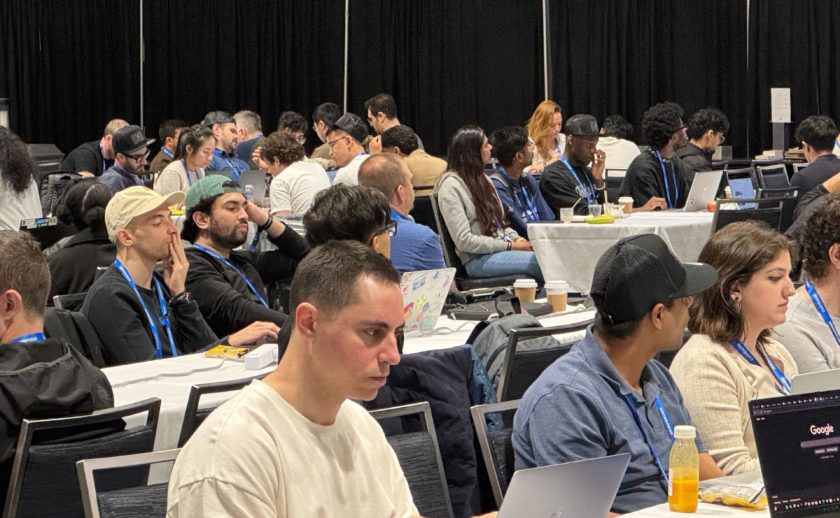The Unique Consensus Mechanism of Decred–Is This True Decentralization?
January 16, 2019 by Paul de Havilland
Decred has a unique consensus mechanism many regard as closer to true decentralization than most other cryptocurrencies. With the pros and cons of different consensus mechanisms being in focus recently, we thought Decred’s unusual hybrid consensus mechanism was worthy of examination.
Also read: Paper Outlines Proof-of-Stake Sidechains for Cardano Ouroboros, Beyond
Subscribe to the Bitsonline YouTube channel for great videos featuring industry insiders & experts
The Consensus Mechanism of Decred in a Nutshell
Decred’s governance uses a hybrid Proof of Work, Proof of Stake model for decision-making to take place. The model works through Politeia, an off-chain element of the Decred consensus mechanism. The Decred development team placed $20 million USD into the Politeia treasury to jump-start it. Stakeholders–those who own Decred’s DCR tokens–are able to then make decisions in a transparent, referendum-based system.
Anyone who holds at least 100 DCR is able to enter a lottery to stake their coins. In exchange for doing so, they are granted voting rights, and vote along with miners. The decentralization of power was always at the heart of the Decred team’s goals. With many coming from the bitcoin core development team, they had become disillusioned with the amount of control miners had. As Decred’s Jake Yocom-Piatt explained:
“In Bitcoin, the miners hold all the power. Its governance is off-chain and ad hoc. We felt that as a stakeholder, you should have input on what happens. If you’re holding a cryptocurrency and miners are making decisions that aren’t good for you that’s unhealthy. We wanted to balance the decision-making power between miners and holders.”
Voting earns PoS voters DCR tokens, too, so they are rewarded much like miners are for providing PoW. And to further increase Decred’s democratic theme, even holders of fewer than 100 DCRs can vote by forming pools of 100 DCRs with other token holders in a process called ticket splitting. (At press time, 1 DCR was worth around $15.)
Recent History of Power Struggles the Antithesis of Decentralization
The recent bitcoin cash hard fork pitted ABC’s Amaury Sechet, Jihan Wu & Bitmain, and Roger Ver against SV’s Dr. Craig Wright, Calvin Ayre and CoinGeek, SVPool, BMG Pool, Okminer, and Mempool. The contentious fork saw the ABC version win the battle through the short-term rental of massive amounts of hash power. The hash war was essentially over block size upgrades, though the heat it raised among participants demonstrated that bitcoin cash was anything but decentralized.
Telos, a high-profile fork of EOS, was formed because former EOS developer Douglas Horn became disillusioned with the control “whales” had over the network. While buying votes was prohibited in the EOS constitution, Horn was determined to reimagine EOSIO by “correcting the hyper-centralization of voting power”.
EOS decisions are made, and its network operated, by 21 elected block producers, who Horn argued, were too easily influenced by EOS whales. Inside the delicately crafted Delegated Proof of Stake system Dan Larimer had created resided a monster. As Horn asked in a Medium post:
“But in a system governed by voting, is it reasonable to expect less than 1% of the voters who control well over 70% of the voting power to choose the good of the network over their own self-interest?”
Centralized Control Anathema to the Ethos of Decentralization
Blockchain technology is often touted as a panacea to all the world’s power disparity problems with words such as “decentralized”. In truth, most distributed ledgers are controlled to a large degree by a small number of stakeholders. Decred’s hybridized consensus mechanism means that those who make network decisions aren’t necessarily whales or large miners. As Decred’s Yocom-Piatt points out:
“A rolling lottery or sortition acts as a decentralization mechanism. While Proof of Work is a rolling lottery on hashpower, our model adds an opt-in lottery on coins staked for decision making. By sacrificing short-term liquidity, you gain the ability to participate in the decision making process and earn a reward.”
And Decred has earned plenty of… cred. Its voting structure has removed its vulnerability to forking, and the contentiousness that can produce. It has also attracted some VC interest. Placeholder, a digital asset venture firm, invested in Decred because, as partner Chris Burniske put it:
“If anything was going to serve as an alternative digital store of value to Bitcoin, I think it would be Decred.”
Now, that’s some compliment. It has also caught the eye of Michael Nye:
“Proof of Work is a rolling lottery on hashpower, our model adds an opt-in lottery on coins staked for decision making.”
Great article from @CryptoLeslie about $DCR. I’m diving into deeper research on this one.
— Michael Nye (@CryptoShillNye) January 12, 2019
Have your say. Is the Consensus Mechanism of Decred something you find appealing?
Images via Pixabay





